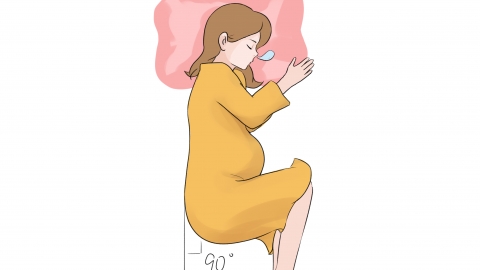Why do finger joints hurt during pregnancy?
Generally, finger joint pain during pregnancy may be caused by hormonal changes, edema, tenosynovitis, arthritis, hypothyroidism, and other factors. Treatment options include general therapy and medication, under a doctor's guidance. It is recommended to seek timely medical advice and receive treatment accordingly. Detailed explanations are as follows:

1. Hormonal Changes
During pregnancy, levels of estrogen, progesterone, and relaxin increase. Relaxin causes ligaments around the joints to loosen, facilitating pelvic expansion during childbirth. This relaxing effect can also affect the finger joints, decreasing joint stability and making them more susceptible to minor external forces, thus causing pain. Pregnant women are advised to perform appropriate hand joint exercises, such as clenching fists and stretching fingers, to strengthen the muscles surrounding the joints and maintain joint stability.
2. Edema
Metabolic changes during pregnancy, increased blood volume, and pressure from the enlarged uterus on the inferior vena cava, which affects venous return, can lead to fluid accumulation in the interstitial spaces, causing edema. Excess fluid accumulation around the finger joints may compress surrounding nerves and tissues, resulting in finger joint pain. It is important to rest adequately during daily life, avoid prolonged standing or sitting, and elevate the limbs while resting to promote blood return.
3. Tenosynovitis
Tenosynovitis may be related to frequent finger use in daily activities such as typing and lifting objects. Repeated friction can cause inflammation between the tendons and tendon sheaths, leading to tendon sheath congestion, edema, and thickening, which in turn compresses the tendons, causing finger joint pain. Symptoms may also include snapping, locking, or restricted finger movement during activity. Patients can use medications such as diclofenac diethylamine gel, ibuprofen sustained-release capsules, or prednisolone acetate injection under a doctor's guidance.
4. Arthritis
Arthritis may be associated with changes in the immune system during pregnancy. Arthritis can cause joint cartilage damage, narrowing of joint spaces, and bone spurs, altering the biomechanical structure of the joints and decreasing finger joint stability, which leads to pain. Symptoms may also include joint swelling, stiffness, and deformity. Patients should follow medical advice to use medications such as glucosamine sulfate capsules, methotrexate tablets, or celecoxib capsules to alleviate symptoms.
5. Hypothyroidism
Hypothyroidism may be related to genetic factors, endocrine disorders, and other factors. During pregnancy, the demand for thyroid hormones increases; if thyroid function is insufficient to synthesize adequate thyroid hormones, hypothyroidism may occur. Hypothyroidism slows down metabolism and affects nerve conduction function, leading to insufficient nutrient supply to the nerves and muscles in the hands, causing finger joint pain. Symptoms may also include cold intolerance, fatigue, and excessive sleepiness. Patients can use medications such as levothyroxine sodium tablets, propylthiouracil tablets, or methimazole tablets under a doctor's guidance.
In daily life, pregnant women should pay attention to moderate hand joint activity and avoid overexertion; maintain good posture to reduce pressure on the hand joints; undergo regular prenatal checkups to detect and address health issues promptly, preventing finger joint pain.









